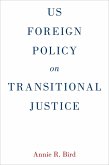The relationship between international order and justice has long been central to the study and practice of international relations. For most of the twentieth century, states and international society gave priority to a view of order that focused on the minimum conditions for coexistence in a pluralist, conflictual world. Justice was seen either as secondary or sometimes even as a challenge to order. Recent developments have forced a reassessment of this position. Firstly, many trends in the 1990s increased expectations of greater justice within a liberal and liberalizing international order - for example, in relation to human rights, humanitarian intervention, collective security, and self-determination. Second, globalization deepened the sense of ideational and material interdependence, prompting acknowledgement that we co-exist in a single world and that effective solutions to shared problems cannot be achieved without a concern for justice - especially as the negative aspects of globalization have become more evident. Third, claims to justice and critiques of the existing order have been forcefully pressed by an increasing range of non-governmental and other groups within transnational civil society. These three developments suggest movement towards a greater solidarist consciousness and ambition, based primarily on a liberal vision of the relationship between order and justice. This book sets current concerns within a broad historical and theoretical context; explores the depth and scope of this presumed solidarism amidst the difficulties of acting on the basis of a more strongly articulated liberal position; and underscores the complexity and abiding tensions inherent in the relationship between order and justice. Chapters examine a wide range of state and transnational perspectives on order and justice, including those from China, India, Russia, the United States, and the Islamic world. Other chapters investigate how the order-justice relationship is mediated within major international institutions, including the United Nations, the World Trade Organization and the global financial institutions.
Dieser Download kann aus rechtlichen Gründen nur mit Rechnungsadresse in A, B, BG, CY, CZ, D, DK, EW, E, FIN, F, GR, HR, H, IRL, I, LT, L, LR, M, NL, PL, P, R, S, SLO, SK ausgeliefert werden.









